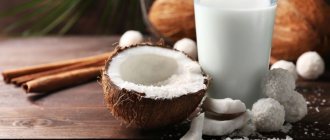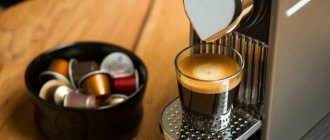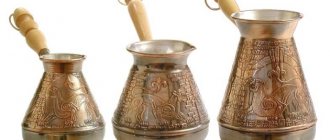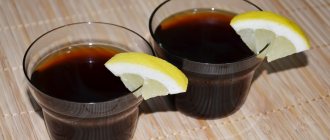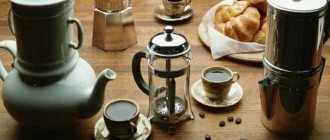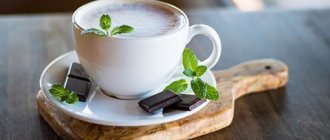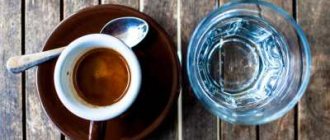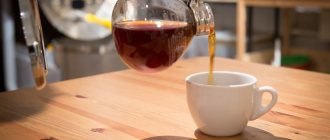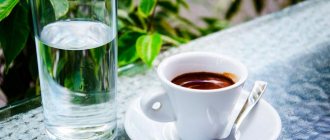Why is it important to use good water for making coffee?
Water for coffee allows you to reveal the rich taste of the drink; it should be soft, free of chlorine compounds and low alkalinity. If you deviate from any indicator, the taste properties of the prepared drink change - it may become bitter or not at all reveal the taste properties inherent in the processing of coffee raw materials.
What kind of water should I pour into coffee to make espresso and other invigorating drink options? Only one that has a low level of hardness, average mineralization and saturation with potassium salts. Natural water from mineral and mountain springs meets high safety requirements. This coffee brewing water goes through a multi-stage filtration system through a network of natural filters.
Water for coffee must be of natural origin, its environmental safety standards must be high. The presence of foreign impurities and excess calcium levels will lead to the formation of scale in the coffee machine. Water with high mineralization and hardness during preparation captures ions that are formed as a result of the dissolution of a portion of coffee in a cup. As a result, all the active substances inherent in coffee beans by nature simply will not reach the taste buds.
What parameters affect the taste?
The SCA Water Quality Handbook outlines the characteristics that coffee water must meet.
| Recommended SCA value | Possible range | |
| Smell | Without smell | |
| Color | Without color and impurities | |
| Chlorine | 0 mg/l | |
| Total dissolved particles (total mineralization, TDS) | 150 mg/l (in my experience - up to 120 mg/l) | 75-250 mg/l |
| Calcium hardness | 68 mg/l | 17-85 mg/l |
| Total alkalinity | 40 mg/l | about 40 mg/l |
| pH | 7.0 | 6.5-7.5 |
| Sodium | 10 mg/l | less than 30 mg/l |
I will not dwell in detail on the color, smell and chlorine - I think everything is clear here. Chlorine greatly spoils the taste of coffee, but it is easy to get rid of it with a simple carbon filter (for example, these are found in Brita and Aquaphor jugs).
pH
indicates the balance between acidity and alkalinity. Since coffee is rich in acids, alkaline water will make it dull. We need a neutral ph of 7.0 ± 0.3.
Rigidity
— content of calcium and magnesium cations. Water that is too hard can cause scale damage to equipment, so it is common practice to soften hard water. But calcium and magnesium cations cannot be completely removed from water, because they are also responsible for the taste and aroma of coffee. Calcium is needed for stable extraction and a dense body, and magnesium in the water helps to “pull out” valuable malic acid from coffee.
If the coffee hardness is too low, the coffee will lack body and the extraction will be unstable. If the coffee is too hard, it will lose all its flavor nuances—there is no point in brewing light roasts with such water.
SCA only specifies calcium hardness—the content of calcium cations—in its recommendations.
Alkalinity
— the ability of water to neutralize incoming acidity. This is important for us because coffee, as we remember, is rich in acids. In water with low alkalinity, the coffee will be brighter and more acidic. Water with high alkalinity neutralizes acids, resulting in flat coffee.
Total mineralization (TDS)
. TDS itself does not say anything about the composition and only shows the total amount of dissolved salts in the water. But this is still an informative parameter: lower TDS indirectly indicates lower hardness. Water with a TDS that is too high will make the coffee flat and prevent it from opening up, while a TDS that is too low will give it a “cloudy” taste.
Water Chernogolovskaya 19 liters
379 rub.
Why do you drink coffee with a glass of water? General tips for making coffee.
Water after coffee is a long-standing tradition among coffee gourmets. Alternating coffee and water allows you to prolong the aftertaste when drinking a coffee drink. If a tonic drink is served after eating the main meal, a glass of water is served in order to activate the perception of taste buds, for example, after eating dishes with added spices and preservatives.
Many people are interested in how to drink coffee with water correctly? If coffee is served as the main drink at the table, then you should alternate between drinking coffee and clean water. This allows you to enhance the taste of the drink.
Why do people drink water after coffee? To prevent drowsiness, the risk of high blood pressure and to maintain oral hygiene. In many establishments, coffee is served to the table along with cool, clean water. A portion of fresh water is drunk before drinking a coffee drink to get rid of the unpleasant aftertaste after eating food. Drinking coffee with water is also beneficial - clean water neutralizes alkaloids and enhances the invigorating effect.
Or maybe buy bottled water for the coffee machine?
As an option, you can buy bottled water with a total mineralization from 75 mg/l to 250 mg/l, but without the presence of iodine, fluorine, etc. additives.
It is desirable that the label bear the SCAA and SCAE markings, indicating the water’s compliance with international standards. Thus, good bottled water can be used for a coffee machine without installing a softener, if its hardness parameter is within acceptable limits.
How to measure water hardness?
Dip the test strip in water for a few seconds. Remove it from the water, wait one minute and see how many stripes appear or squares turn red and compare the result with the data in the table from the instructions for the coffee machine.
Experiment with different brands of bottled drinking water and, based on the resulting taste of the drink, choose the one that allows you to make the perfect coffee for you!
The right water for coffee. The effect of water on the taste of coffee.
Water for making coffee? It would seem that it could be simpler, but this is not at all the case. I decided to write this article after numerous questions from our customers. The fact is that everyone is delighted when they try freshly roasted Kenya or Honduras here and rarely leave without a pack of coffee. However, some customers note that our coffee tastes different at home and want to know why. Everything is very simple. We must not forget that water makes up the majority of the drink and low-quality water can spoil the taste of even the most expensive type of coffee. We use only the best water, which helps bring out the flavor of the coffee rather than killing it.
What makes a cup of coffee unforgettable? The best freshly roasted beans, high-quality grinding, barista skill and, of course, the right water. After all, it makes up most of the contents of a cup of coffee. Selection of the best varieties of coffee, fresh roasting and adherence to all preparation rituals lose their meaning if unsuitable or low-quality water is used to prepare the drink. Only clean water is of high quality, free of foreign impurities and odor.
Any water (except distilled) contains some amount of minerals and chemical elements. Some of them have a positive effect on the taste of coffee, others have a negative effect. For example, chlorinated water from municipal water supplies is not suitable for making delicious coffee. Such water, in addition to minerals, contains chlorine, rust, biological impurities and suspensions, which have a detrimental effect on the taste of the resulting drink. If you do use tap water to make coffee, you should at least let the water sit, or even better, pass it through a good filter.
The best way to prepare delicious coffee is pure natural water from a high-mountain spring or mountain glacier, not carbonated or mineralized. However, water from every source is not suitable - to obtain optimal results, you need to know the mineral content of the water you use. Each of us has repeatedly noticed that salt makes food more “tasty,” just as the mineral salts contained in water affect the taste of coffee. To obtain a tasty drink, water must not only be fresh and clean, but also contain a certain amount of chemical elements.
So, what indicators should you pay attention to when choosing water for coffee?
pH value of water
is a measure of the activity of hydrogen ions in a liquid, quantitatively expressing its acidity. To obtain delicious coffee, this indicator should be in the range between 6.5 and 7.5, ideally aiming for 7 (neutral water). The more hydrogen ions (H+) in water, the lower the pH, which means higher acidity. Water becomes alkaline if it contains large amounts of hydroxide ions (OH-). Both acidity and alkalinity negatively affect the taste of coffee. Typically, excess acidity (low pH) makes coffee taste bitter, while alkalinity (high pH) makes coffee taste flat.
General mineralization
– this is an indicator of the amount of dissolved substances contained in water (English TDS). To obtain delicious coffee, this figure should be in the range between 75 and 250 mg/l, ideally aiming for 150 mg/l. High total mineralization usually indicates a high salt content in the water. Water with a high content of mineral salts is called hard, while water with a low content is called soft. Water that is too hard or too soft is not suitable for making coffee. If you use too soft water or distilled water (water from which all salts and minerals have been removed) to make coffee, the drink will be under-extracted, bland and taste flat, like food prepared without seasoning. Too hard water, in turn, leads to overextraction and makes coffee bitter.
Recent research shows that the best coffee comes from water that is low in calcium, sodium and bicarbonates, but relatively high in magnesium. Sodium salts should be avoided because they affect our perception of sweet and sour tastes. Ideally, their content in water should not exceed 10 mg/l. Concentrations greater than 30 mg/l have a detrimental effect on the taste of the drink. The amount of calcium salts should be 17-85 mg/l, ideally between 51-68 mg/l.
Of course, everything written above is just a starting point, since the perception of taste is individual. The simple truth is that a cup of delicious coffee requires fresh and clean water, free of foreign impurities and odors. We recommend water with a pH value tending to neutral (pH 7), a total mineralization of 100-150 mg/l, a low content of calcium, sodium and bicarbonates, but a relatively high content of magnesium . But don't forget that each of us is unique. The main thing is, don’t be afraid to experiment and remember that the perfect cup of coffee is already in your hands.
PS. All of the above recommendations apply to classic methods of making coffee (pour over, Chemex, French press). The process of making espresso is very different from the process of making classic coffee, and therefore the water required for these methods is different. Unlike classical methods, where water is in contact with ground coffee for a long time, when preparing espresso, water passes through the coffee for 20-25 seconds under high pressure, so the presence of mineral salts in the water is not particularly important. To prepare espresso, you should take very soft water with a total mineralization of about 50 mg/l and a pH tending to neutral (pH 7) . The softness of the water will minimize salt deposits in your espresso machine, which is very important, because the taste of the resulting drink directly depends on the cleanliness of the machine.
When they try our coffee, everyone is simply delighted. However, some customers note that the taste of coffee at home is different and ask us why. Everything is very simple. You just need to remember that water makes up the majority of the drink and low-quality water can ruin the taste of even the most expensive type of coffee. We use only the best water, which helps bring out the flavor of the coffee rather than killing it.
Assessment of the chemical characteristics of water for coffee
There are standards that are used for water to make coffee. Among them:
- smell;
- color;
- presence of chlorine;
- general mineralization;
- hardness;
- alkalinity;
- pH;
- sodium level and so on.
In more detail, water for a coffee machine cannot have aroma. Water has no color, it must be one hundred percent transparent. The chlorine level does not exceed 0 mg/l. Total mineralization should be maintained at a level of 75 to 250 mg/l.
For good coffee, calcium saturation is 17-85 mg/l. Hard water contains magnesium, calcium, iron, and manganese. This quality is not harmful to health, but it changes the taste of the drink.
Alkalinity also matters. It should be maintained at 40 mg/l. The highest level neutralizes the acidity of the water and negatively affects the taste of coffee.
The ideal pH level is 7. This is a neutral indicator. Increasing this value will reduce the brightness of the coffee. When it decreases significantly, the water acquires a bitter taste and spoils the drink. It's also worth checking your sodium levels. The best indicator is 10 mg/l
Modern automatic coffee machines have a “WATER HARDNESS” option. Adjust this indicator in the device according to the degree of water hardness in your home
What water is suitable for use in a coffee machine?
Many coffee machine users ask: what water is best to use when making coffee? This question is truly of great importance. Not because the taste of coffee depends on water, but because its quality affects how long the coffee machine will last.
So what about tap water, store-bought and filtered?


